The Best Server For Virtual Machines
Choosing the right server for virtual machines (VMs) is a critical decision, as it directly impacts the performance, scalability, and efficiency of your virtualized environment.
Step-by-step guide
Here's a step-by-step guide on how to choose the best server for your VM needs:
1. Define Your Virtualization Goals:
-
Determine the purpose of your VMs (e.g., hosting applications, development, testing, or data storage).
-
Identify the number of VMs you plan to run and their resource requirements (CPU, RAM, storage).
-
Consider future growth and scalability requirements.
2. Assess Your Budget: Establish a budget for your server hardware, taking into account not just the upfront cost but also ongoing maintenance and operational expenses.
3. Consider Server Hardware Specifications:
-
CPU: Choose a server with a capable CPU or multiple CPUs that can handle the workload of your VMs. Modern multi-core processors are ideal.
-
RAM: Ensure sufficient RAM for your VMs. Overcommitting RAM can lead to performance issues, so allocate enough for each VM.
-
Storage: Opt for fast and reliable storage, such as SSDs or NVMe drives, for VMs requiring high I/O performance. Consider storage redundancy and RAID configurations for data protection.
-
Networking: Select servers with multiple NICs for redundancy and load balancing. Gigabit or 10GbE ports are common choices.
4. Compatibility with Virtualization Software: Ensure that your chosen server is compatible with your preferred virtualization platform, whether it's VMware, Hyper-V, Proxmox, or others.
5. Form Factor and Rack Space: Decide whether you need a tower server, rack-mounted server, or blade server based on your physical space and infrastructure.
6. Redundancy and Reliability: Look for server features like redundant power supplies and RAID controllers to minimize downtime and data loss.
7. Management and Remote Access: Consider servers with remote management capabilities like IPMI, iDRAC, or iLO for easy monitoring and maintenance.
8. Energy Efficiency: Energy-efficient servers can reduce operational costs. Check for Energy Star ratings and power efficiency features.
9. Warranty and Support: Ensure the server comes with a warranty that suits your needs and inquire about available support options.
10. Evaluate Brands and Models:
-
Research reputable server brands like Dell, HP, Lenovo, and others.
-
Compare specific server models within your budget that meet your requirements.
11. Review Case Studies and User Feedback: Seek user reviews and case studies for the servers you're considering to learn about real-world performance and reliability.
12. Plan for Backup and Disaster Recovery: Consider how you will back up your VMs and implement disaster recovery solutions.
13. Scalability: Ensure the server can accommodate future expansion without significant infrastructure changes.
14. Future-Proofing: Anticipate future technology trends and select a server that can support evolving VM requirements.
15. Consult with Experts: If you're unsure, consult with Servermall IT professionals to get recommendations tailored to your needs.
16. Purchase and Setup: After making your choice, purchase the server, set it up according to best practices, and deploy your VMs.
Remember that the best server for virtual machines may vary depending on your specific use case, so thoroughly assess your requirements and do your research before making a final decision.
Best DELL Servers for Virtual Machines
DELL Poweredge R740
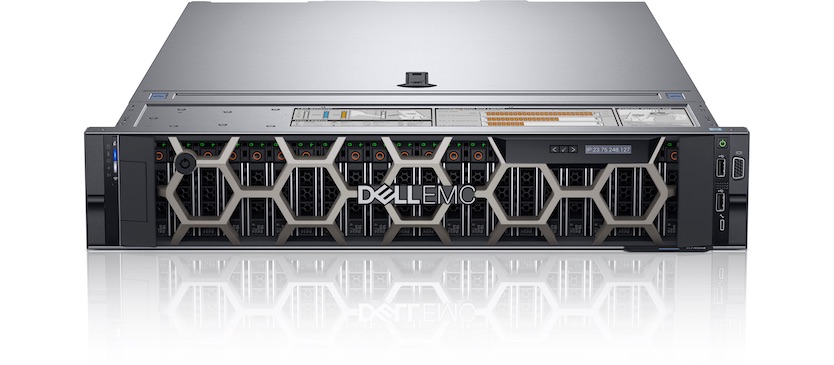
The DELL PowerEdge R740 series is known for its versatility and strong performance, making it suitable for various virtualization workloads. It supports dual processors, up to 3TB of RAM, and multiple storage configurations, including SSDs and NVMe drives. The R740 is often used for medium to large-scale virtualization environments.
Specs:
-
CPU Options: Dual Intel Xeon Scalable processors.
-
RAM Capacity: Up to 3TB of DDR4 memory.
-
Storage Options: Supports multiple 2.5-inch and 3.5-inch drives, including SSDs and HDDs. Also supports NVMe drives for high-performance storage.
-
Expandability: Offers multiple PCIe slots for expansion cards.
-
Remote Management: Features Dell's iDRAC for remote management and monitoring.
-
Virtualization Compatibility: Compatible with various virtualization platforms, including VMware vSphere and Microsoft Hyper-V.
DELL Poweredge R640

The DELL PowerEdge R640 is a 1U rack server designed for virtualization and high-density computing. It offers a balance between performance and compactness, making it ideal for smaller data centers or organizations with limited rack space. It supports dual processors, ample memory, and various storage options.
Specs:
-
CPU Options: Dual Intel Xeon Scalable processors.
-
RAM Capacity: Supports up to 3TB of DDR4 memory.
-
Storage Options: Offers a mix of 2.5-inch and 3.5-inch drive bays, accommodating SSDs and HDDs.
-
GPU Support: Allows for GPU configurations for AI and machine learning workloads.
-
Management: Equipped with iDRAC for remote management and monitoring.
-
Virtualization Compatibility: Suitable for a wide range of virtualization platforms.
DELL Poweredge T640
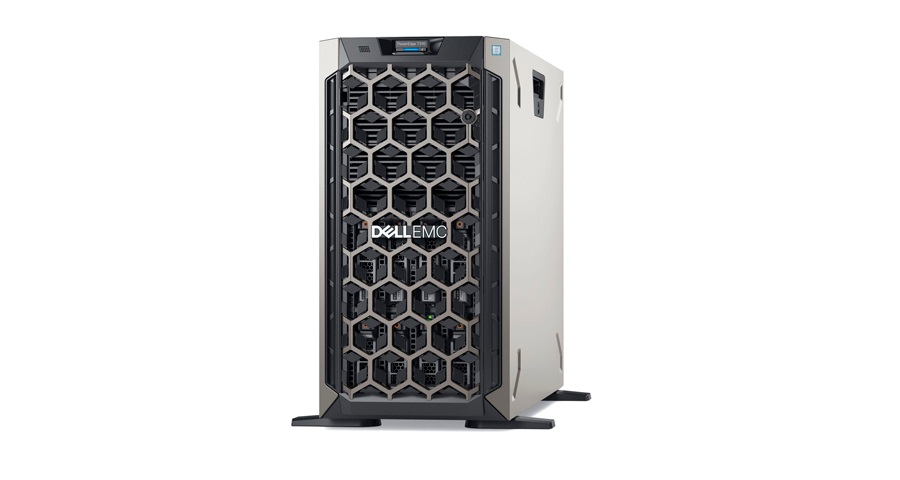
If you're running a smaller virtualization environment or have budget constraints, the DELL PowerEdge T340 series is a tower server option. It offers good performance for small to medium-sized businesses and supports up to two processors, substantial RAM, and multiple storage configurations. It's a cost-effective choice for entry-level virtualization.
Specs:
-
CPU Options: Dual Intel Xeon Scalable processors.
-
RAM Capacity: Supports up to 3TB of DDR4 memory.
-
Storage Options: Offers a mix of 2.5-inch and 3.5-inch drive bays, including support for NVMe drives.
-
Expandability: Offers ample PCIe slots for expansion cards.
-
Tower Form Factor: Unlike the previous rack servers, the T640 comes in a tower form factor, making it suitable for environments where rack space is limited.
-
Management: Equipped with iDRAC for remote management.
-
Virtualization Compatibility: Suitable for virtualization in small to medium-sized businesses.
Best HPE Servers for Virtual Machines
HPE ProLiant DL380 Gen10
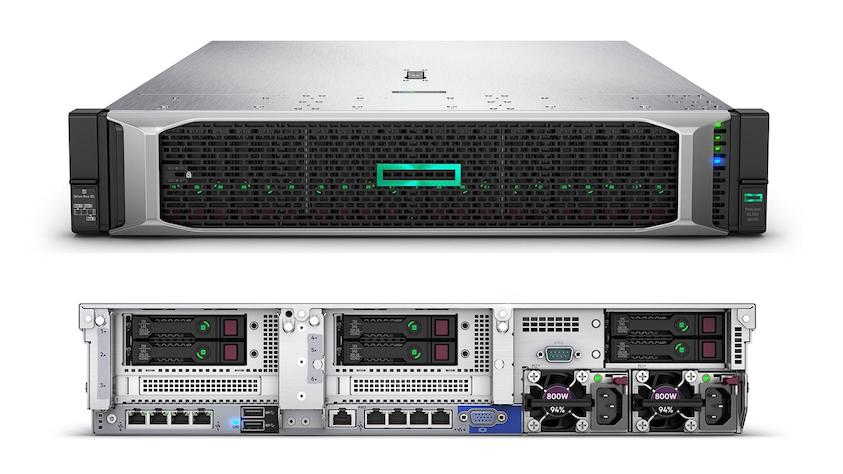
The HPE ProLiant DL380 Gen10 is a versatile and widely acclaimed 2U rack server known for its performance and scalability. It is suitable for a wide range of virtualization workloads.
Key Specifications:
-
CPU Options: Dual Intel Xeon Scalable processors.
-
RAM Capacity: Supports up to 3.5TB of DDR4 memory.
-
Storage Options: Offers a variety of storage configurations, including SSDs and HDDs.
-
Networking: Multiple Ethernet ports for networking flexibility.
-
Remote Management: HPE iLO (Integrated Lights Out) for remote management and monitoring.
HPE ProLiant DL360 Gen10
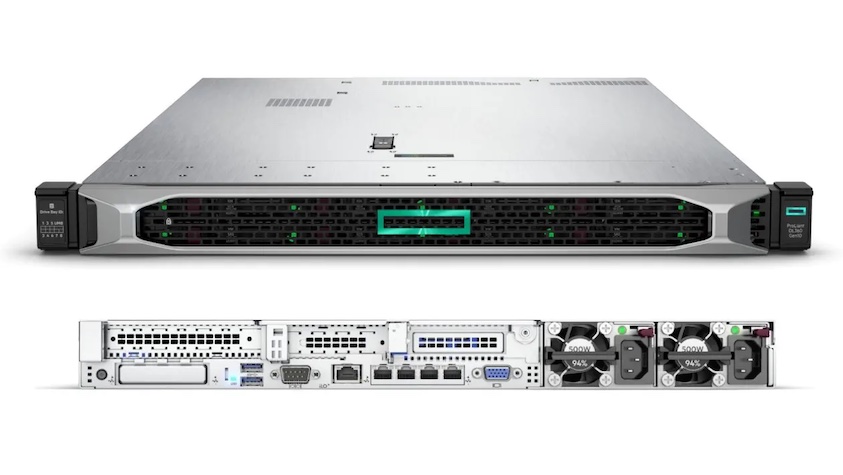
The HPE ProLiant DL360 Gen10 is a compact 1U rack server known for its high-performance capabilities and space efficiency. It is suitable for virtualization in data center environments where space is limited.
Key Specifications:
-
CPU Options: Dual Intel Xeon Scalable processors.
-
RAM Capacity: Supports up to 3.0TB of DDR4 memory.
-
Storage Options: Accommodates SSDs and HDDs.
-
Networking: Multiple Ethernet ports for networking flexibility.
-
GPU Support: Allows for GPU configurations for AI and graphics-intensive workloads.
-
Remote Management: HPE iLO for remote management and monitoring.
HPE ProLiant ML350 Gen10
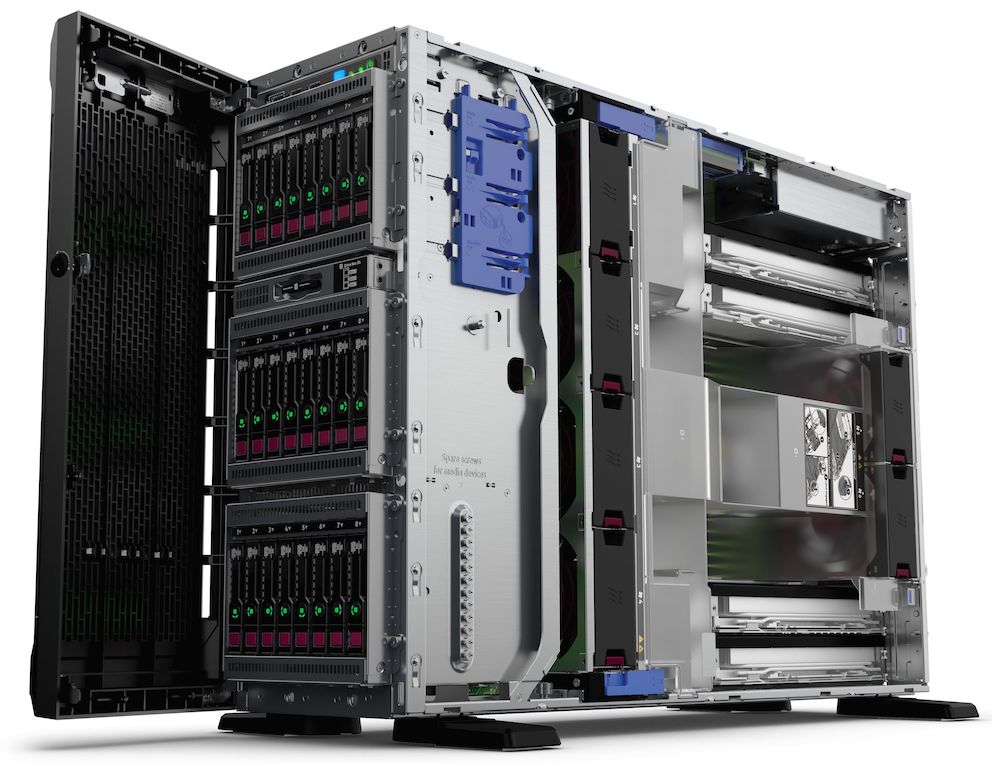
The HPE ProLiant ML350 Gen10 is a tower server suitable for small to medium-sized businesses that require robust virtualization capabilities. It offers versatility and room for expansion.
Key Specifications:
-
CPU Options: Dual Intel Xeon Scalable processors.
-
RAM Capacity: Supports up to 3.0TB of DDR4 memory.
-
Storage Options: Provides various storage configurations, including SSDs and HDDs.
-
Expandability: Offers ample PCIe slots for expansion cards.
-
Remote Management: HPE iLO for remote management and monitoring.
-
Tower Form Factor: Designed for environments where rack space is limited.
Conclusion
In conclusion, selecting the right server for your virtual machines is a pivotal decision that can profoundly impact the efficiency, performance, and scalability of your virtualized environment. By carefully assessing your unique needs, budget, and growth projections, you can make an informed choice that aligns with your virtualization goals.
Remember, technology continually evolves, and the best server for virtual machines today may not hold the same position tomorrow. Stay current with the latest advancements in server hardware and virtualization technologies to ensure that your infrastructure remains agile and adaptable to future demands.
Ultimately, whether you opt for a powerhouse rack server like the Dell PowerEdge R740, a versatile 1U solution such as the HPE ProLiant DL360 Gen10, or a tower server like the Dell PowerEdge T640, the key lies in finding the perfect balance between your specific requirements and the server's capabilities.
Investing the time and effort in selecting the right server now can yield substantial benefits in terms of enhanced performance, reduced operational costs, and a more seamless virtualization experience. As you embark on this journey, remember that the right server is not merely a piece of hardware; it's the cornerstone of your virtualization success, poised to power your digital endeavors into the future.